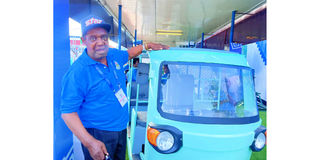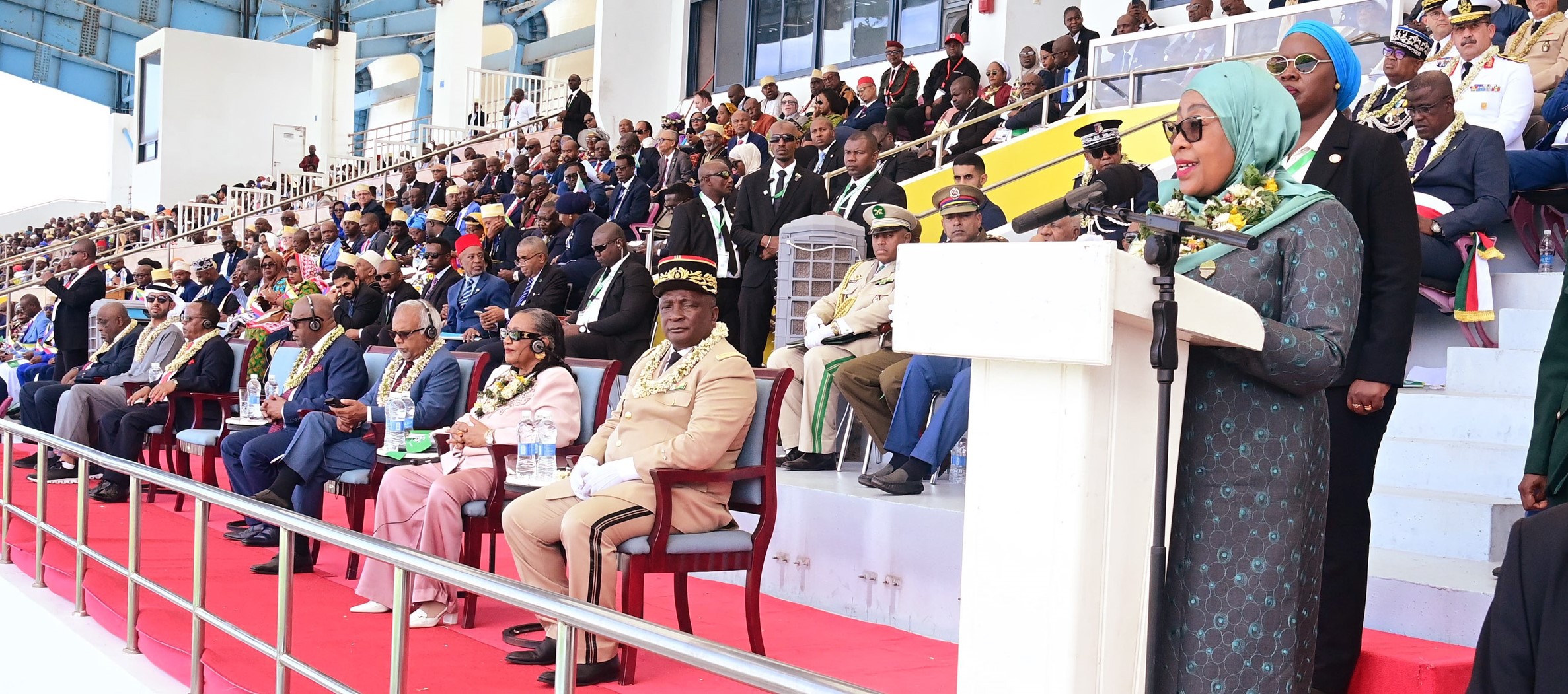Prime
Tanzanian innovator unveils water-cooled, fuel-efficient tricycle for African roads

Mr Andrew Mbanga unveiled his invention at the 49th Dar es Salaam International Trade Fair (DITF), which runs from June 28 to July 13. PHOTO | GADIOSA LAMTEY
What you need to know:
- The vehicle features a water-based cooling system that helps regulate engine temperature and reduce fuel consumption
Dar es Salaam. An innovator from the College of Engineering and Technology (CoET) of the University of Dar es Salaam (UDSM) has developed a three-wheeled vehicle that uses both water and fuel, offering a cost-effective transport solution amid rising fuel prices.
Mr Andrew Mbanga unveiled his invention at the 49th Dar es Salaam International Trade Fair (DITF), which runs from June 28 to July 13.
Initially constructed independently, the vehicle was later refined with the support of CoET engineers.
“We started again and built it step by step, improving the design with help from university experts,” Mr Mbanga said.
The vehicle features a water-based cooling system that helps regulate engine temperature and reduce fuel consumption.
Water from a dedicated tank circulates through the engine, passes into a radiator, and is cooled by a fan before being recirculated.
Mr Mbanga said that any clean, non-salty water can be used.
“With regular use, the water lasts about a week. Salty or dirty water can damage the radiator or clog the system,” he said.
The design, inspired by water-cooling systems typically found in large cargo vehicles, offers better fuel efficiency and extends engine life compared to standard three-wheeled passenger vehicles.
Mr Mbanga plans to establish a manufacturing plant to produce three vehicle variants: one powered by gas, another by solar energy, and one using conventional fuel. He said he has already received orders from both local and regional customers.
“After the exhibition, we’ll submit the vehicle to the Tanzania Commission for Science and Technology (Costech) for evaluation and road testing. Once approved, we’ll set a price that’s affordable for ordinary users,” he said.
Fairgoers expressed optimism about the invention. One visitor, Mr John Julius, said the innovation could lower transport costs and help improve incomes.
“This could really make a difference for many households,” he said.




